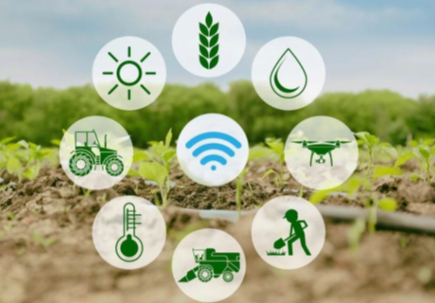Technology is reshaping agriculture through smart farming solutions. Drones enhance precision in crop monitoring, while IoT devices deliver critical real-time data on soil health. AI and data analytics streamline decision-making by predicting agricultural trends. Moreover, integrating renewable energy and smart irrigation systems promotes sustainable practices. These advancements not only improve productivity but also challenge traditional farming methods, raising questions about the future of agriculture in an increasingly tech-driven landscape.
The Role of Drones in Precision Agriculture
As agriculture increasingly adopts technological advancements, drones have emerged as pivotal tools in precision agriculture, enabling farmers to optimize their operations with unprecedented efficiency.
Utilizing drone surveillance, farmers can conduct comprehensive crop mapping, identifying variations in crop health and soil conditions. This high-resolution data empowers informed decision-making, fostering sustainable practices while enhancing productivity and resource management in an era where autonomy and innovation are paramount.
IoT Devices: Monitoring and Managing Crop Health
An array of IoT devices has revolutionized the monitoring and management of crop health in modern agriculture. Utilizing sensor networks, these crop sensors provide real-time data on soil moisture, temperature, and nutrient levels.
This innovative technology enables farmers to make precise interventions, optimizing resource use while enhancing crop yields. As a result, agricultural practices become more efficient and sustainable, promoting greater freedom in farming decisions.
Read more: The Rise of Tech in Mental Health Therapy and Diagnosis
AI and Data Analytics: Making Informed Decisions
The integration of AI and data analytics in agriculture has emerged as a pivotal enhancement to the capabilities provided by IoT devices in monitoring crop health.
Through predictive analytics and machine learning, farmers can analyze vast datasets to identify trends and optimize yields.
This data-driven approach empowers decision-making, allowing for timely interventions and resource management that align with the evolving demands of agricultural practices.
Sustainable Practices Through Technology Integration
While traditional farming methods have often prioritized short-term gains, the integration of technology is reshaping the landscape towards more sustainable practices.
Vertical farming systems leverage renewable energy sources, minimizing environmental impact while maximizing yield efficiency. By employing smart irrigation and climate control technologies, farmers can optimize resource use, reduce waste, and promote biodiversity, ultimately fostering a resilient agricultural ecosystem that aligns with contemporary environmental goals.
Conclusion
In conclusion, technology is transforming traditional tactics into tailored techniques for modern agriculture. Drones deliver detailed data, while IoT devices dynamically diagnose crop conditions. AI and analytics articulate actionable insights, empowering farmers to enhance efficiency. Sustainable solutions, supported by smart systems, safeguard the soil and secure the future of farming. This harmonious blend of high-tech tools not only amplifies agricultural acumen but also advances an era of eco-friendly efficiency, ensuring resilience in a rapidly evolving agricultural landscape.




